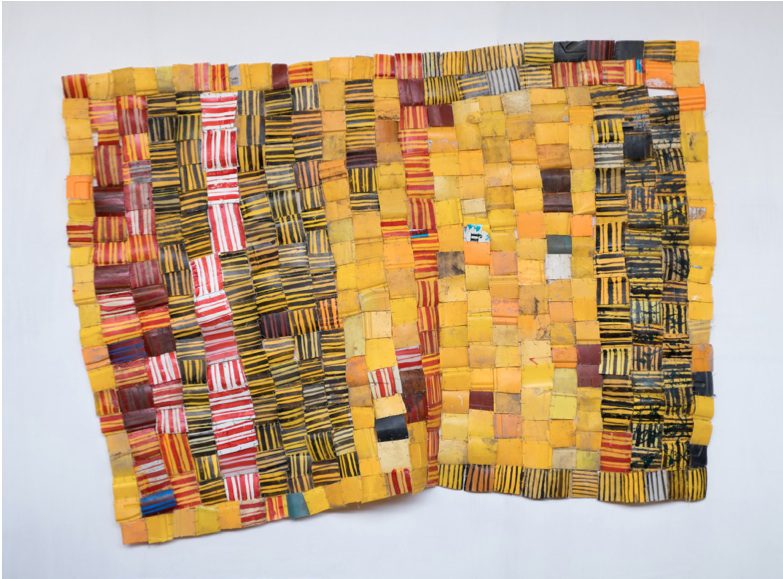GNYP Gallery, Berlin, Germany
22 Oct 2016 - 03 Dec 2016

Serge Attukwei Clottey, Keeping conditions, 2016 Plastics, wire and oil paint 63 x 86 in 160 x 218,5 cm Unique
GNYP Gallery is presenting the exhibition „Earthly Conversation » by the African Artist Serge Attukwei Clottey.
In his work, the Ghanaian artist Serge Attukwei Clottey addresses ideas that pervade his personal life as much as they have pervaded the recent history of Africa. The uncontrolled migration of people and objects, the uneasy feeling of displacement, but also the growing awareness of one’s own power, have created the environment in which Clottey’s drawings, wall works, and performances could happen.
In his first solo exhibition in Berlin, Earthly Conversations, the artist presents wall pieces and drawings, as well as a photograph relating to his performances. His characteristic yellow wall pieces are made out of plastic jerry cans; a process that Clottey calls “afrogallonism.” Today’s landscape of Africa is unthinkable without the presence of these brightly colored cheap jugs, often imported from China, which after having been used for transporting water and oil, will be abandoned as garbage. Clottey transforms this waste into paint-less paintings by assembling tiles made of these discarded plastic cans to look like beautiful fabrics. In doing so, he on the one hand relates his work to the local textile tradition, on the other speaks about the issues of global pollution and the omnipresence of litter dumped especially in poorer countries. Of great importance is the aspect of transformation, which carriesa ritualistic character that the artist sometimes connects to the Ghanaian ancestor cult. In the exhibition, the process of transformation is stressed by the installation made of petrified wood, which, like crude oil (the raw material of plastic), came into existence during a long process of changing substance when buried underneath rockformations.
The ritualistic and spiritual nature of the works doesn’t prevent the artist from tackling the earthly problems of Ghanaian society. Using unmistakable formal references to cubism in his drawings, Clottey tells the story of his artistic education in Accra, where as a student in the art academy he was taught about Picasso but not necessarily about the local artistic traditions. The dark drawings reflect on the country’s corruption, injustice against women, and other kinds social inequality. In the performances that Clottey often conducts together with the GoLokal collective that he set up with artist friends a few years ago, he attacks traditional gender roles, the ineffectiveness of local politics, and the postcolonial power structures.
.